The world of financial journalism has some of the most biased and ideologically motivated reporters in the entire journalism profession.
This is not surprising.
Today, there is a vigorous debate about the merits of unregulated capitalism versus more regulation, the failure of privatization, income inequality, corporate abuses, and the basic question of competing ideologies.
Watch the major cable TV financial and business shows, especially on CNBC and FOX, and you will see an assortment of market commentators and anchorpeople who are 100% free-market advocates who blindly accept the philosophy of Milton Friedman and the Austrian School of Economics. If you don’t know what economic positions these on-air people advocate, they say that only markets should decide what’s suitable for society.
Tax reform, social safety nets, poverty programs, public education, and national parks are all expendable. Even better, these institutions should only survive if they can be privatized
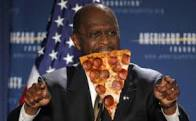
and put into a market system where people who buy these services decide what is viable and successful. If people don’t buy it, it should not exist. If there is income inequality, people don’t work hard. Remember the famous line of the pizza magnate Herman Caine: “If you don’t have a job and you are not rich, blame yourself.”
Blind acceptance of free-market capitalism comforts these commentators and their networks, but it prevents them from addressing the largest key issues facing society today.
If you want to be selfish, cite Ayn Rand and her Objectivism. Do you want tax reform? It’s impossible since the wealthy earn everything they own, plus they are more innovative and don’t have to pay their fair share of taxes because they create jobs. Remember? That’s the myth of trickle-down economics.
Do you want to tax hedge funds, private equity firms, and prominent real estate developers by closing the carried interest loophole? No way. Those firms create jobs and do good things for society, except none is provable.
So, how does all of this play out on the financial news shows?
Watch this clip of CNBC’s Rick Santelli saying it is not appropriate to wear masks. Remember that Santelli is no doctor or scientist. He is a fixed-income expert, but he has bad judgment.
Santelli’s Mussolini imitations in this tape remind us that he did a similar stunt on the floor of the Chicago Mercantile Exchange when he went ballistic near the S&P 500 futures pit to criticize people who could not pay their mortgages due to rampant mortgage and real estate fraud, which caused the 2008 recession.
Santelli’s Mussolini imitation in this recent tape was a repeat of a rant he gave in 2008 that led to the creation of the Tea Party. This is the right-wing Republican cult that gave us Trump, QAnon, Sarah Palin, Michelle Bachmann, Rep. Matt Gaetz (R-Fla.), Rep. Jim Jordan (R-Ohio), Rep. Louie Gohmert (R-Tex.), and other failed doctoral candidates aspirants and mental cases.
But in the world of cable financial journalism, others are just as right-wing, free marketers who don’t see anything wrong with unregulated capitalism, income inequality, and the other front-burner issues that dominate academic and policy discussions in the world capitals.
In broadcast financial journalism, CNBC, FOX, and, to a lesser degree, MSNBC and Bloomberg all have some on-air anchors and reporters who unabashedly push conservative economics into straight financial reporting. Sometimes, viewers are victimized by a handful of ideologue political activists posing as financial journalists.
When this happens, financial journalism becomes tainted. This affects the reporting and credibility of entire networks. Worse, it presents incomplete or distorted news to unsuspecting viewers and investors. It also perpetuates the stigma of the “corporate media” as a real threat to objective journalism that seeks to push its particular agenda of pro-corporate, conservative values.
The Offenders and Blind Supporters of Unregulated Capitalism
Rick Santelli
As noted, CNBC’s Rick Santelli provides one of the best examples of misguided pro-corporate thinking when he delivered his famous rant on the floor of the Chicago Mercantile Exchange in February 2009. This rant is widely credited with starting the Tea Party.
Santelli, an astute fixed-income and currency reporter who does a great job of explaining cross-currency rates and changes in the yield curve, delivered his misguided interpretation of the causes of the 2007 financial crash. 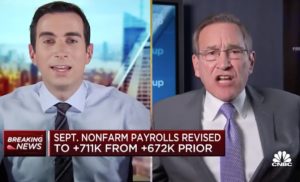
Referring to the TARP and other bank bailout programs, Santilli asked a group of floor traders if they wanted to make mortgage payments for homeowners who were now unable to make their mortgage payments.
This loaded question got the predictable macho response. But as a reporter who covered the scam of mortgage-backed securities, Santelli certainly knew it was systemic fraud from the major banks, over-the-counter trading desks, credit-rating agencies, the real estate industry, and untested Federal Reserve policies that all combined to create the financial system’s failure.
Yet Santelli somehow focused on the least accountable people (average homeowners) as perpetrators of the financial meltdown. He knew better. Yet, his rant happened when the biggest banks in the nation were all set to be bailed out in the emerging TARP program. Santelli’s misguided rant is credited with fermenting a political movement that vilified the federal government when the problem originated in the private sector.
Larry Kudlow
Before he became an economic advisor and Trump’s lapdog, Larry Kudlow was CNBC’s economics reporter. Kudlow is a blind supporter of free-market capitalism and has a terrible record of making economic predictions. In an on-air interview, he said there were no victims in the historic LIBOR price-fixing scandal. 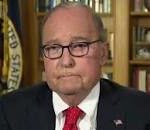
The LIBOR price-fixing scandal was one of the most prominent and longest frauds in financial history. It was perpetrated on millions of people who relied on LIBOR to peg their short- and long-term borrowing for personal and commercial loans. These worldwide loans cover everything from houses and autos to commercial property and airplanes. Kudlow’s ridiculous statement smacks of an effort to spread pure, intentional misinformation. This is why Trump offered him a job as a senior economic advisor.
Joe Kiernan
CNBC’s Joe Kiernan doubted that global warming was a scientific fact. Kiernan said that climate change and the higher temperatures evident in January 2015 were likely not a result of increased Co2 but something else. “It’s almost like witchcraft,” Kiernan said. “In the Middle Ages, it was witchcraft. You would have attributed adverse weather events to witchcraft.”
Varney, Dobbs, Bartiromo
Other examples are displayed by other well-compensated, pro-corporate on-air reporters, Stuart Varney, Lou Dobbs, Neil Cavuto, and Maria Bartiromo. Varney, Dobbs, and Bartiromo have all been blind Trump supporters since he was elected. Varney and Dobbs are way past their prime, but they must appeal to some old pensioners. It’s unclear why they still have jobs. Bartiromo, a protégé of Lou Dobbs, was a creation of horny day traders in the early-80s who saw her as a welcome addition to their trading screens.
Stephanie Ruhl
Even Bloomberg, which I believe has the highest quality broadcast financial reporting, is pro-corporate but more discrete. Here is one example, courtesy of Bloomberg anchor Stephanie Ruhle, who stated on-air that Bernie Sanders is not a viable presidential candidate. As a former Credit Suisse derivatives salesperson, Ruhl still defends free markets, and she gets timid when she lets people like hedge fund manager Anthony Scaramucci, another Trump supporter, get away with saying unsubstantiated things like hedge funds create jobs on her show without being challenged.
For the record, hedge and private equity funds do not create jobs. They either take jobs from the companies they are acquiring (private equity) or are very technological, so they would rather spend money on new software than hire people (hedge funds).
Why Are Some Cable TV Financial Journalists Biased?
One answer to this question stems from their education and corporate enculturation. If these reporters took business classes, most schools would have a myopic approach to teaching the various schools of economics. It’s the Keynesian School vs. the Austrian School. For instance, classical economics treats pollution as an externality, which means it has no role in impacting the economy. Thankfully, that is an old-fashioned idea, but it was taught for decades.
Liberal economists such as Paul Krugman, Greg Mankiw, and Thomas Piketty received a national platform only recently as the world alarm about income inequality reached a crescendo. Marxist economists like Richard Wolf never get air time since their perspective does not produce tradable investing choices.
This is why the top business network, CNBC, appeases its advertisers by covering price moves and news in stocks, bond funds, and ETFs to appeal to active traders. CNBC rarely provides basic investing advice that would raise the financial literacy of average Americans because it’s not profitable.
The other reasons for pro-corporate bias are job advancement, job security, and maintaining access to sources. If the on-air commentators want a job in the private sector, they have to tow the corporate, free-market line. If they espouse a line of liberal thinking, their corporate, think tank and Republican sources will cut them off. In short, much of their thinking is due to self-censorship and the comfort of job preservation.
So, the next time you see one of these on-air personalities espousing a macro-market opinion, assume it is not the whole story. Successful traders made their money by looking at the entire picture, the real and the improbable, and then acting accordingly.
The public rants of reporters like Santilli and Jim Cramer are part of the show. Business TV is very profitable because it is based on free data and free information. The most significant cost is the on-air talent.
So, don’t be fooled. These myopic journalists are paid to be informative and entertaining but don’t rely on them to provide essential answers to the financial and economic problems that society requires today.
https://www.cnn.com/2020/12/04/media/cnbc-santelli-sorkin-coronavirus/index.html
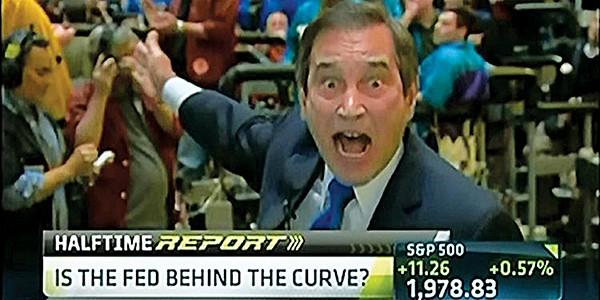

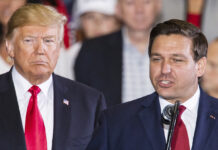









[…] FOX commentators (Joe Kiernan, Maria Bartiromo, Lou Dobbs, Charles Payne, and Stuart Varney) are all free-market zealots who believe in unfettered, unregulated […]